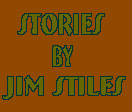

WHATEVER...redux.
"Stiles."
"Zzzzzzzz."
"Stiles!"
"Zzzzzzzz."
"STILES!"
"Hrmmmmm....Veronica?"
"Willie Flocko. Wake up."
"...Go away."
"You've got to wake up."
"What for?"
"You have to do another issue of The Zephyr."
"What do you mean? I thought I was done."
"Nope. Remember? You still have one more issue to do this year. The Retro Issue."
"That can't be right. The last issue was retro, wasn't it? After all, I've been 'clinging to the past since 1989.'"
"The last issue was a retro issue, but it wasn't the Retro Issue."
"What's the difference?"
"You publish six issues a year; you've done five. You owe the readers one more issue."
"My god, do you think they're counting? Surely they've forgotten."
"Most have but a few haven't. You owe it to the few. Get up."
"No."
"GET UP!"
"Unh unh."
"What seems to be the problem, little buddy? You're not depressed again are you? We're all getting pretty tired of your whiny holiday mood swings."
"I'm not depressed. I'm...reflective. And I'm not whining. I'm lamenting."
"Well, reflect on this. If you don't put out another issue, you'll alienate the small fraction of the town that isn't already mad at you."
"Is it that bad?"
"It's that bad."
"OK. What if I did this. What if we just re-printed last year's Retro Issue. Who's going to remember?"
"Someone will."
"Then you write it, Flocko. Just write the damn thing and put my name on it."
"Would that make me a ghostwriter or you a plagiarist?"
"Both, I think."
"Get up, Stiles."
"No."
"Look...Who do you think you are, Ivan Oblomov?"
"'I been all blown off?' What does that mean?"
"Not 'all blown off,' you idiot. 'Ivan Oblomov.'"
"Who was she?"
"Oblomov is a he...a character from one of Goncharov's Russian novels. Oblomov suffered from severe ennui. He took ennui to an entirely new level of misery. He was so incapacitated by ennui that he refused to get out of bed. He said there was no point. And today this is called 'Oblomovism.'"
"Yeah...that's IT! I have terminal ennui. Just tell everyone that the next Zephyr has been canceled due to Oblomovism."
"It won't work. Get up."
"...You know, Willie. It just occurred to me. This sounds like something I've written before...many years ago when the world was young. When hope wasn't a four-letter-word. When apathy wasn't an attitude to brag about. When..."
"Hey...shut up. Nobody cares."
"Precisely. But it is weird, isn't it. You know...deja vu."
"Yes, Jimmie. It's very strange. I'm getting goose pimples just thinking about it."
"Don't call me Jimmie. I hate that."
"But you just look like a 'Jimmie." You're no 'James,' I'll tell you that."
"That hurts."
"The truth always hurts, buckaroo. But the truth will also set you free."
"What does that mean?"
"I couldn't tell you."
"Flocko?"
"Yes?"
"What does it all mean?
"Please, Stiles. Not again."
"Well, I just have to wonder...is there a point to any of this madness that we see occurring around us? Are trams and Burger Kings and Microtels and Cloudsnots the Destiny of this town? Am I just out of step with the vast majority of the community? Maybe those so-called small town values that I cherish and cling to are already a thing of the past. Hell, maybe they never really existed at all. Maybe they're an illusion that I've created in my own mind. We all try to create a world for ourselves that we can be comfortable with. Maybe it's the myth that's crumbling before my very eyes, not the town. And yet, there's no mistaking the fact that Moab is hardly the town it was ten years ago. But then again, is that memory an illusion as well? Do you think my problem is that I'm just not flexible enough?"
"Flocko?"
"Flocko!"
"Zzzzzzz."
"I'll be damned...it really is deja vu."
THE "FABULOUS" 50s
I've always had a love/hate relationship with the Fifties. If you were a white, Anglo-Saxon, Protestant male, it was a very good time to be alive. If you were anything but, times could be tough. Racism and bigotry were not only acceptable forms of behavior, in some parts of the country they were required. In the South, Blacks endured hardships and disadvantages not all that different from a century before. Living conditions for millions of Americans were an abomination.
While Supreme Court decisions in the 1950s called for an end to Jim Crow and racial discrimination, the federal government was slow to enforce those rulings. The great social upheavals of the 60s were still years away and now it almost seems as if the decade of the 50s was a time for the country to catch its breath in the wake of a decade of war. The nation slumbered.
The Eisenhower Administration and the CIA waged a series of secret wars against nations sympathetic to Communist principles, and overthrew democratically elected governments in countries like Guatemala and Iran. Very few Americans questioned its government's foreign policy; for most, the ends justified the means.
You know...sort of like today.
Within the government, beginning in the late 1940s, politicians like Joe McCarthy waged a psychological war against fellow Americans. Those citizens not willing to tow the anti-Communist line risked terrible consequences. Careers were destroyed, families were torn apart, and friendships were severed, just for being called "soft on Communism." Never in recent history has this country been gripped by such national paranoia.
And everyone lived under the umbrella of nuclear fear. The end of World War II brought us the atomic bomb, the Russians matched our technology by 1949 and, just a few years into the new decade, both super power nations possessed an arsenal of hydrogen bombs capable of obliterating all human life on earth. Grade school children really did participate in, what my school called, "disaster drills."
"Duck and cover." Or kiss your ass goodbye.
And yet many Americans believed technology would save humanity and enrich us beyond our ability to comprehend it. In the wake of World War II, anything was supposed to be possible. Nuclear technology for peacetime purposes inspired some farmers to write the Atomic Energy Commission. They wanted some small bombs to remove stumps from their wheat fields. Every American would not only keep two cars in the garage but a private plane as well.
Nature was here to be manipulated and controlled by technology, for the benefit of the masses. The Bureau of Reclamation planned a series of massive dams on the Colorado and Green Rivers that would have eliminated every free-flowing mile. The most spectacular canyon system on earth, Glen Canyon, was condemned to death in 1956.
And yet, what now seems so obviously wrong, was only vaguely unsettling to Americans as they lived through the 50s. In fact, for most of Middle-class America, it was a time of extraordinary wealth and success. The GI Bill gave an entire generation of young veterans a college education and unlimited opportunities. The war had the effect of shrinking the country--the two coasts no longer seemed so far away. Even remote desert towns like Moab would gain national prominence as men seeking wealth and a new life pulled up longstanding roots and hit the road.
I remember the 50s, or at least a part of them. For all its faults, it was a quiet time, especially when compared to 2002. America's population was barely half what it is today, if you can imagine that. Big changes were coming but they were just beginning to come...
When I was barely four, my family moved to a new home in what would become the suburbs of Louisville, Kentucky. But we were at the vanguard of a mass exodus out of the city. Glen Meade Road poked a solitary asphalt finger into what had been agricultural land for almost 200 years. Behind our house, a wheat field still stretched across an eternity of space, bright and golden in the summer sun. And beyond the field, beyond the reach of any four year old kid, lay a forest as dark and impenetrable as any fortress Nature could construct. We simply called it "The Woods."
No matter how old I live to be, no matter where I may travel on this planet, there will never be a place so full of mystery and excitement and adventure as was The Woods to my friends and me. The stories and legends that grew out of those trees still rekindle powerful feelings even after all these years.
For one thing the place was obviously haunted. An old cemetery that had been consumed by grape vines and poison ivy was a perfect breeding ground for spirits. And we were sure that a remnant population of bears still resided deep within the forest. Never-before-seen bottomless swamps were teeming with slime and dead bodies and poisonous snakes. And most frightening/exciting of all, reports of a hobo camp in The Woods, led by the notorious Big Lips Louie, sent chills up and down our spines when we discussed the possibilities.
A hobo had once come to the back fence, looking for a handout, but we suspected he wanted to take us with him. "What would he want with us?" I speculated to my friend Peter Caldwell.
"What do you think, you dumb little kid? He wants to cook you! Who do you think they throw in the swamp?"
Peter walked away, disgusted at our ignorance, but then he was older and wiser in the ways of the world. He was six. Ultimately, The Woods had everything a kid needed--- weathered gravestones and the ghosts that inhabit them, monstrous tall trees covered with grapevines for swinging, poison ivy as an itchy reminder, bottomless swamps. And Big Lips Louie. God that place made me happy.
One early morning in the autumn, as my dad shaved and got ready for work, I came into the bathroom and stepped up on the box my parents had provided me (I was still too short for the toilet and needed some booster elevation for a truer aim). I looked out the window across the wheat field to my beloved Woods. What I saw in that next moment, that one moment, has haunted me ever since.
There, along the tree line, lined up bumper to blade, were almost a dozen large road graders and bulldozers. They were bright yellow and so out of place, so ugly to the eye, as they sat belching smoke and destroying the silence of what should have been just another day in the life of The Woods.
"What are they doing?" I exclaimed to my father.
He set down the razor and gazed out the window for a long moment himself. "That's construction equipment," he said. "They're going to put in a new subdivision over there...just like ours."
I stared blankly at him.
"But what about The Woods," I asked.
"Well," my dad hesitated. "I'm afraid they'll knock down a lot of those trees. But, you see, people need a place to live. Families just like us. It's progress."
Then, as if to soften the blow, he added, "Maybe you'll make some new friends."
I watched the action across the field long after my father had finished shaving and dressed and gone to work. I watched most of the day as the big machines went to work as well. It didn't take long. The big trees snapped like match sticks. Clouds of dust engulfed the dozers and the men running them---engulfed The Woods itself. When the dust truly settled, weeks and months later, the place had been transformed. It was a mirror image of Glen Meade Road---rubber stamp houses with sodded lawns and a Chinese elm in the yard. There was not a hint of the haunted lovely forest that had so completely captured our fancies. And there was no sign at all of the hobos.
Four decades later, I still remember that moment. I remember it every time I see another remnant of a once perfect world plowed under or paved over. And so the next time a new motel uproots an old cottonwood tree, or a condo development replaces a sagebrush meadow, and somebody says to me, "What's the big deal?" my answer is simple...
"Graveyards, bottomless swamps, and Big Lips Louie."
TRADITIONAL RETRO DISCLAIMER...AND THANKS
Just a reminder. Although this issue is not distributed until late January, it is printed before Charistmas. If any event occurs in the interim that renders part or all of this edition tasteless, inappropriate, or disgusting, it's not our fault,
Thanks this year to Dan O'Connor and Alexandra Woodruff who shared the photo morphing job. They are responsible for all the glory or all the blame.
And finally...to that anonymous person (or persons) who sent me flowers and the encouraging note, you're the best. For a guy accustomed to 'brickbats,' your 'bouquet' was greatly appreciated.
And they smelled good too.








